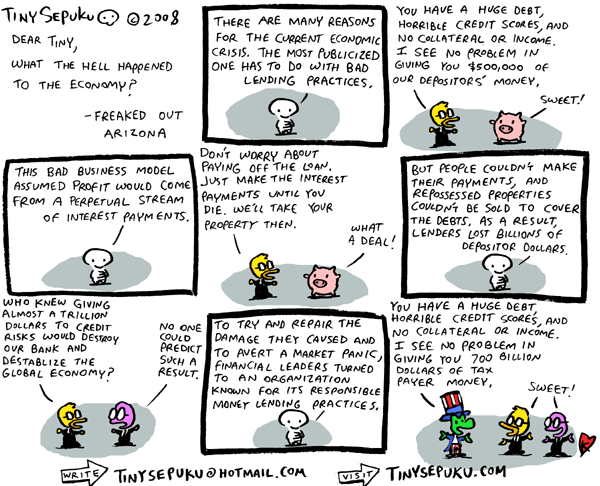
There's an error, here, though. The government isn't lending any money - it's giving it away. Specifically, it's going to give away perfectly good money purchasing securities that no one else on earth wants at any price. I still wonder why loans are off the table? Why does all this money have to go to lending institutions in a form that will never require any of it to be paid back? If restoring liquidity is the goal, why can't we make the loans that are required to keep the financial world functioning, allow the weakest lenders start to fail, and allow the others to strengthen their position by purchasing the better paper at fire-sale prices?
Could it be that the people running the show think their primary responsibility is to guarantee investments, rather than guaranteeing the functioning of the economy?
(Thanks to James for the link)
Friday, October 3, 2008
The financial crisis
Subscribe to:
Post Comments (Atom)


2 comments:
You're welcome.
Of course I only found it thanks to Jason Kuznicki at Positive Liberty, so please allow me to thank him as well.
P.S. Although I don't like the bailout, I disagree with your assessment that the securities are worthless. Not all of them are, and many will pan out in the end, for the holder who can afford to wait. Undoubtedly most of them will be resold by the government to private investors.
So although they're likely to be sold for less than the gov't paid for them, the final cost will be the $700 billion paid - the amounts recieved back from reselling the securities.
As to why not loans? I still can't answer that. I'll have to ask Russell Roberts at Cafe Hayek.
Post a Comment